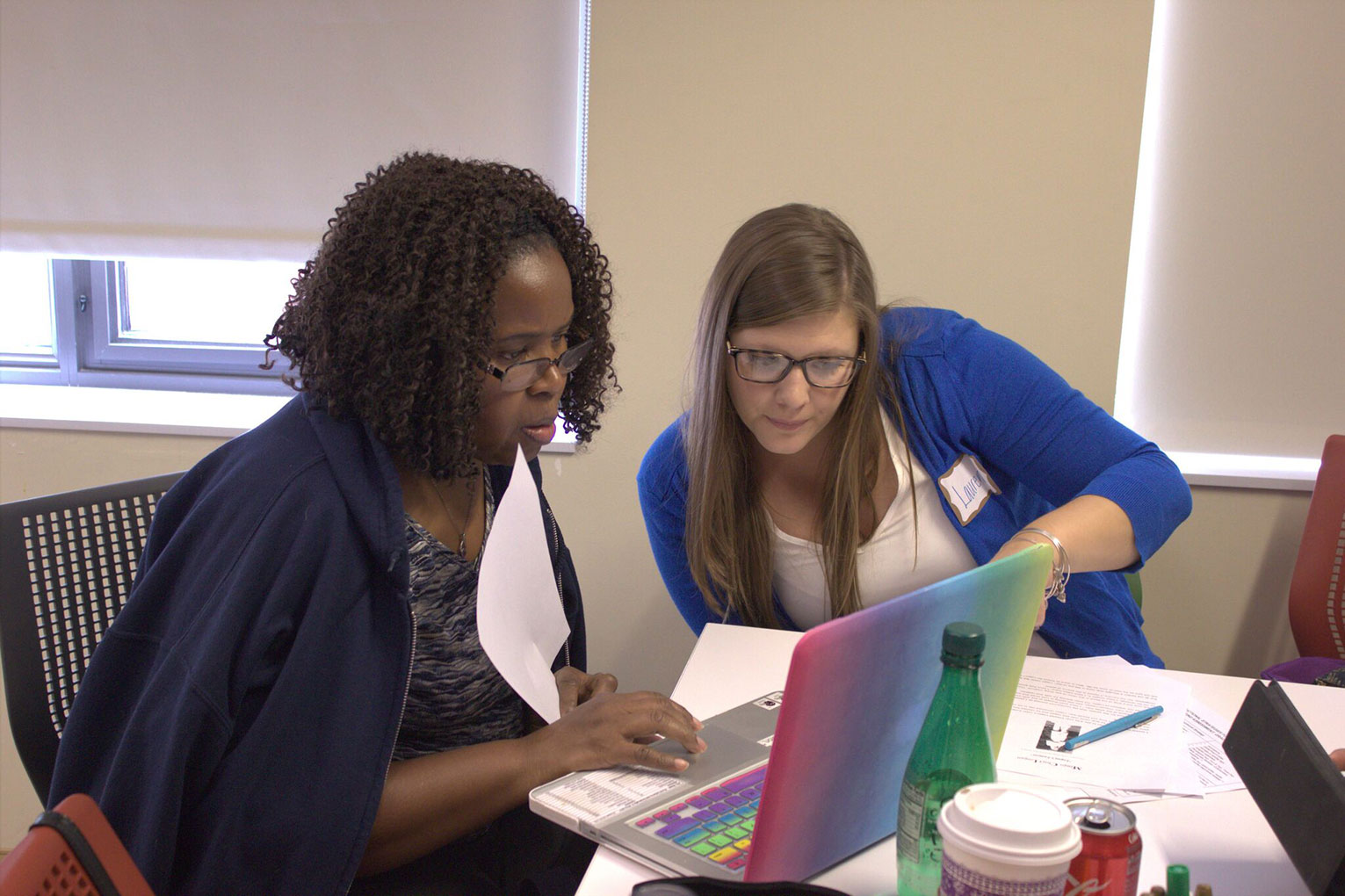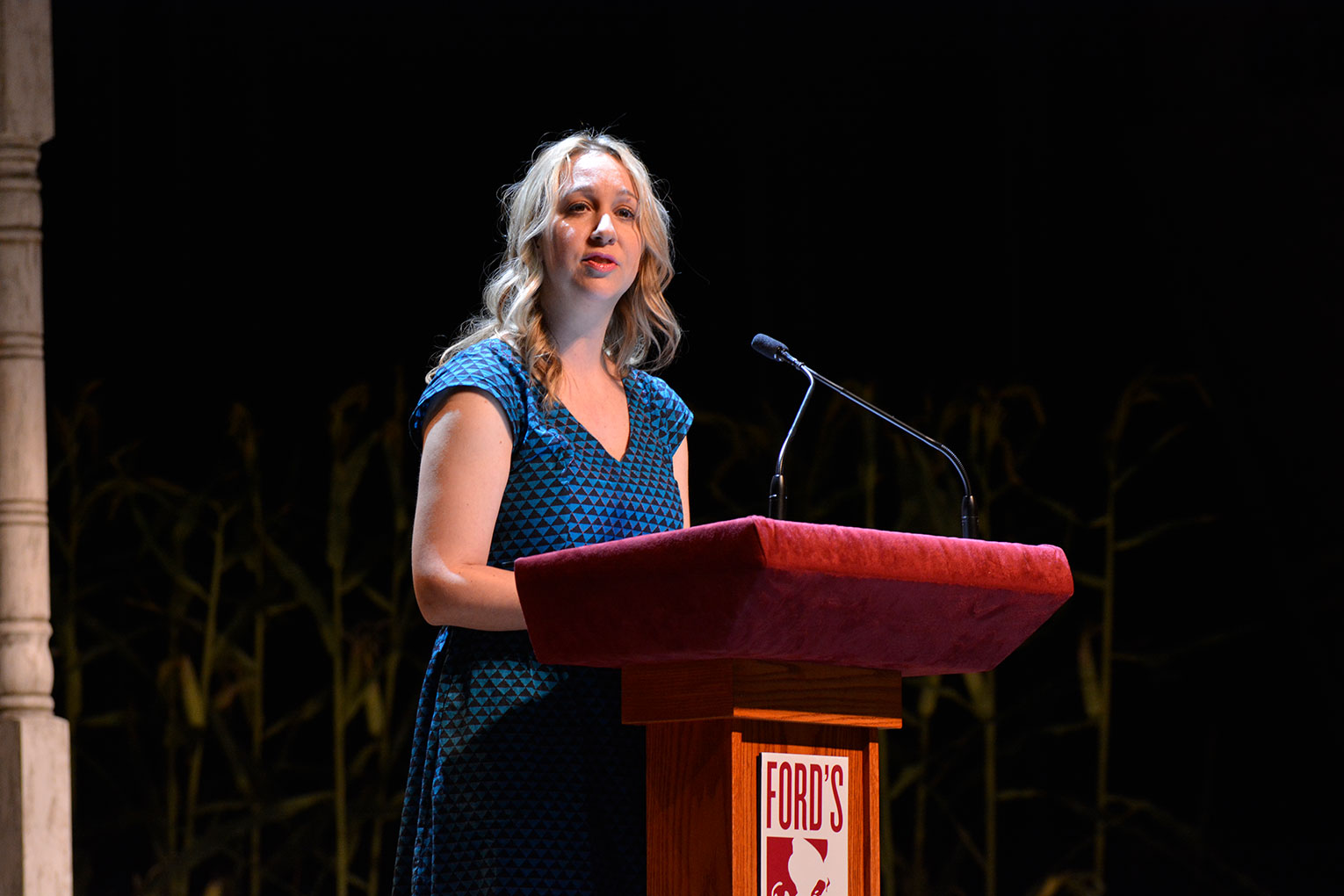
Reflecting on Successes of the National Oratory Fellows Program
In January 2019, we completed the first of a three-year evaluation of our National Oratory Fellows program. The program provides teachers of grades 5-8 (who teach primarily history/social studies and English Language Arts) with intensive support to integrate oratory into their classroom practice. Teachers develop skills to support students in close-reading historical speeches, writing original persuasive speeches and coaching students in speech performance.
Our year one report offers insight into three areas of interest: impact on teacher practice, impact on student learning and impact on the school community.
1. The National Oratory Fellows program has a major impact on teachers.

Eighty-nine percent of Fellows rated the professional development they receive in the National Oratory Fellowship as having a transformative or major impact on their teaching practice.
Specifically, the program:
- Expands their toolkit for addressing student speaking and listening standards
- 85 percent of Fellows implement the core program strategies (such as Podium Points and Warm/Cool Feedback) in their classroom at least once a month.
- Supports teachers in providing more frequent opportunities for students to hone their speaking and listening skills
- The longer teachers are in the program the more often they use oratory techniques and the more thoroughly it is embedded throughout their curriculum.
2. National Oratory Fellows have a major impact on their students.
Seventy-five percent of Fellows feel the program has a major impact on their students’ confidence in public speaking.

- 79 percent of students in Oratory classrooms found Podium Points helpful.
- 81 percent of students found the technique of Warm and Cool Feedback useful in that it ensures concrete, actionable feedback on how to improve their speaking and creates a safe, trusting atmosphere.
In interviews with researchers, National Oratory Fellows emphasized how oratory empowers their students by:
- Giving students tools to develop their public speaking
- Giving students freedom to choose speeches and topics about which they feel passionate
Fellows also report using an oratory approach greatly impacts their overall classroom culture.
- 79 percent of Fellows report a positive effect on the level of civil discourse in their classrooms.
- 96 percent report that their students are better able to give each other constructive feedback.
- Nearly all fellows cited multiple examples of seeing their quiet students blossom with structured coaching in Ford’s oratory techniques.
3. National Oratory Fellows have a major impact on their schools.

Not only do our Fellows implement oratory into their classroom curricula, they also serve as ambassadors of oratory within their schools and districts.
- 93 percent of Fellows talk to colleagues about how to integrate oratory in their curricula.
- 82 percent of the above percentage said they had shared specific program resources.
- 89 percent of Fellows take oratory skills they perfect in our programs outside of their classroom by organizing school-wide or community-level oratory events.
- In multiple schools that have been connected to the program longest, oratory is now a formal part of the grade-level curriculum.
What does this mean for Ford’s and the National Oratory Fellows program?
We are thrilled with the first-year findings! The report provides evidence for what we have already observed with our Fellows.
When teachers are empowered to teach speaking and listening well, students blossom into powerful public speakers, teachers blossom into teacher leaders, and schools become centers of productive civil discourse.
Cynthia Gertsen, Ford’s Theatre Associate Director for Arts Education
With this data in hand, we continue to work with our Fellows to develop materials and resources that not only help students develop their voices but also inspire students to speak out about issues that matter most to them. We continue to work with our Fellows to share our data and our materials in their schools, communities and networks, so that more teachers and students benefit from this work.
Note on the data: The findings in this summary are from Year One of the external evaluation, conducted by Dr. Catherine Awsumb Nelson, Ph.D. The evaluation includes the following data sources: year-end survey of participating Fellows; pre/post survey of students in Fellow classrooms; observations of in-person and on-line professional development; case studies of three Fellows, including interviews at three points during the year, analysis of classroom artifacts and interviews with mentor teachers and administrators.
Cynthia Gertsen was the Associate Director of Arts Education at Ford’s Theatre.

